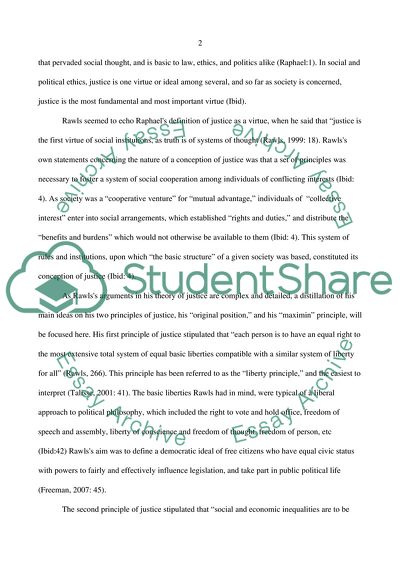Cite this document
(John Rawls's Principles of Justice Assignment Example | Topics and Well Written Essays - 1849 words, n.d.)
John Rawls's Principles of Justice Assignment Example | Topics and Well Written Essays - 1849 words. Retrieved from https://studentshare.org/law/1561141-should-priciples-of-justice-in-a-community-begin-with-the-maximin-assumption-evident-in-john-rawls-work-a-theory-of-justice
John Rawls's Principles of Justice Assignment Example | Topics and Well Written Essays - 1849 words. Retrieved from https://studentshare.org/law/1561141-should-priciples-of-justice-in-a-community-begin-with-the-maximin-assumption-evident-in-john-rawls-work-a-theory-of-justice
(John Rawls'S Principles of Justice Assignment Example | Topics and Well Written Essays - 1849 Words)
John Rawls'S Principles of Justice Assignment Example | Topics and Well Written Essays - 1849 Words. https://studentshare.org/law/1561141-should-priciples-of-justice-in-a-community-begin-with-the-maximin-assumption-evident-in-john-rawls-work-a-theory-of-justice.
John Rawls'S Principles of Justice Assignment Example | Topics and Well Written Essays - 1849 Words. https://studentshare.org/law/1561141-should-priciples-of-justice-in-a-community-begin-with-the-maximin-assumption-evident-in-john-rawls-work-a-theory-of-justice.
“John Rawls'S Principles of Justice Assignment Example | Topics and Well Written Essays - 1849 Words”, n.d. https://studentshare.org/law/1561141-should-priciples-of-justice-in-a-community-begin-with-the-maximin-assumption-evident-in-john-rawls-work-a-theory-of-justice.


